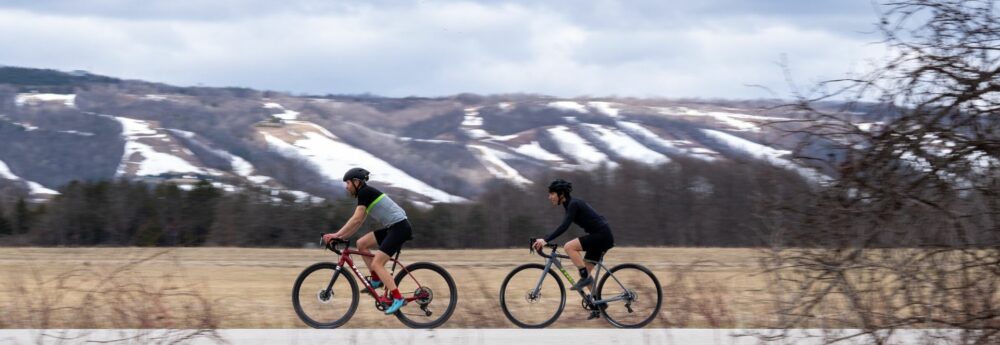I finally read Mindset: The New Psychology of Success by Carol Dweck and I admit, in a lot of ways, it felt like I had already read it a dozen times, given how often it’s referenced in other self-development and sports psych literature, and how many people talk about it in podcasts. Honestly, I can’t believe it took me this long to finally just buy and read the damn thing, and once I opened it, I could not put it down. After reading it over the course of a few days, I realized a couple of things and wanted to share my key takeaways.
I definitely have a fixed mindset in some areas. (So do most of us.)
“What are the consequences of thinking that your intelligence or personality is something you can develop, as opposed to something that is a fixed, deep-seated trait?” Dweck asks. As someone who grew up as a ‘good reader’ or ‘smart,’ I grew up in a fixed mindset around my intelligence, FOR SURE. “Believing that your qualities are carved in stone—the fixed mindset—creates an urgency to prove yourself over and over,” she adds, and that was 100% the case for me. Which, while it’s likely not the worst trait to have, has definitely made me think about how I assume people feel about me. Case in point: The other day, Peter had to remind me he wasn’t going to change how he felt about me if I was taking on a job that would make more money—but in my head, I need to keep producing more and more to keep being a valuable partner in our relationship.
On the flip side, I also grew up as someone who was NOT naturally an athlete. So, in that side of life, I did have a growth mindset when I got into racing. I think it’s interesting to realize that it’s not a black and white mindset.
Even in athletics, though, I can see hints of my fixed mindset. The bigger thing for me here is this concept of not trying for fear of failing. “Nothing is harder than saying, ‘I gave it my all and it wasn’t good enough,'” Dweck adds. “The idea of trying and still failing—of leaving yourself without excuses—is the worst fear within the fixed mindset, and it haunted and paralyzed her.”
I had to ask myself if that’s why I have been sticking to some more local events. I don’t think that’s my motivation—not wanting to race the bigger fields for fear of failing—but it’s something I need to watch for. It’s really nice winning races, but not when you know deep down that you’re also avoiding races where you might actually fail.
It’s all about effort (and being OK with it)
“The other thing exceptional people seem to have is a special talent for converting life’s setbacks into future successes,” Dweck says. She adds that in a fixed mindset, putting effort into something is A Bad Thing because it means you’re not naturally smart/talented/gifted.
Even—or especially—the experts. In fact, sports is where the idea of “a natural” comes from—someone who looks like an athlete, moves like an athlete, and is an athlete, all without trying. So great is the belief in natural talent that many scouts and coaches search only for naturals, and teams will vie with each other to pay exorbitant amounts to recruit them.
Looking back, I think I was extremely lucky that I avoided sports as a kid. Because I realize now that I am well-built for certain sports like trail running, and I know that as a kid, I was VERY fixed in the idea of being ‘smart,’ I realize that had I been in youth sports and decent at them, I would have quickly become insufferably convinced of my own athletic talent. It was SO much better for me to find sports at an older age and have to work really freaking hard to learn how to train and build up slowly as an adult. In fact, if I hadn’t come to endurance sport as an adult, I honestly can say I think my fixed mindset in the rest of my life would be A LOT worse.
Being good at something isn’t always… well, good.
This story Dweck shared killed me: Cynthia, a scientist, was amazing at almost everything she did—so much so that she left her partners in the dust. That might have been all right if she didn’t always venture into their territory. She married an actor, and then started writing plays and acting in them—superbly. She said she was just trying to share his life and his interests, but her part-time hobby outshone his career. He felt he had to escape from the relationship to find himself again. Next, she married a musician who was a great cook, and in no time flat she was tickling the ivories and inventing unbelievable recipes. Once again, the depressed husband eventually fled. Cynthia left her partners no room for their own identity; she needed to equal or surpass them in every skill they arrived with. There are many good ways to support our partners or show interest in their lives. This is not one of them.
Raise your hand if you’ve been guilty of this, to any degree? *Raising both hands, waving emphatically.* I am terrible for this, whether it’s with a partner or a friend. OK, maybe I don’t play piano ‘superbly’ or at all, but I definitely have seen myself do this over the years. It’s something I’ve stopped for the most part, but I still catch myself sometimes: When Peter goes for a hard mountain bike ride and I can’t keep up, I start thinking about the training I should do to get better at riding, not because I want to for me, but because I want to be at the same level as him. Which makes no sense. For competitive people, especially when they’re married to other competitive people, this is probably the most important part of the book, despite it being a pretty small section.
And on the note of relationships, I really liked the reminder that approaching a marriage or partnership with a growth mindset is key. If you have a fixed mindset towards it, at the first sign of conflict, it can start feeling like it wasn’t ‘meant to be’ and ‘not worth pursuing.’ But with a growth mindset, it’s easy to understand that marriage, like anything else, takes work and it’s not always perfect or easy! We’re back to effort being a GOOD thing, not something embarrassing to avoid.
Anyway, if you haven’t read this book yet and are at all into sports psych or personal development, GET IT NOW. It’s pretty much the basis for 99% of what you need to know to move your life forward.
Get it here: Mindset: The New Psychology of Success by Carol Dweck
Before you go, get subscribed for a twice-monthly set of tips, tricks + outdoor motivation!






